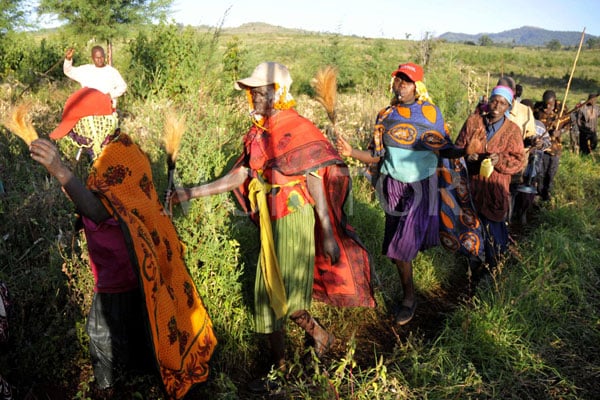Prime
Sebei leaders want FGM Act amended

Some candidates being prepared for the Female Genital Mutilation in Sebei Sun-region. The practice was outlawed in 2010. PHOTO/FILE
What you need to know:
- Mr Moris Kiplangat, a senior community development officer at Bukwo District local government, argues that although the cases of FGM have significantly reduced, there are still obstacles, such as weakness in the law, to end it completely.
Local leaders from Sebei sub region, Eastern Uganda have appealed to government to facilitate the amendment of the current Female Genital Mutilation (FGM) Act 2010 in order to ease the prosecution process of the perpetrators.
Mr Moris Kiplangat, a senior community development officer at Bukwo District local government, argues that although the cases of FGM have significantly reduced, there are still obstacles, such as weakness in the law, to end it completely.
He says the FGM Act provides no room for protecting the whistle blowers hence reluctance in reporting the cases.
“The FGM act has some gaps because it has no protections for the persons who report. The law says that the person witnessing and following (the group of mutilators) have their penalties. Because of this, people have kept quiet because those who would be whistleblowers are not protected in the act,” Mr Kiplangat told this publication.
Accordingly, Mr FredMark Chesang, the Sipi regional police public relations officer, said enforcement officers find difficulties getting substantial evidence provided for under the Act hence giving the perpetrators loopholes to exploit to their advantage.
“Prosecuting that suspect is a challenge because the court may require substantial evidence (fresh genital part of a woman) to make sure the suspect is prosecuted which is a bit difficult to find since the vice is now practiced in secret,” Mr Chesang said.
Other obstacles
Mr Samuel Francis Ononge, the Action Aid International project officer in charge of UNFPA project in Sebei sub region, said porous borders and poverty have greatly impacted their progress in fighting FGM in the sub region.
“We received information that when these girls are taken to Kenya for mutilation, one who takes a girl receives Shs 100,000 per girl,” Mr Ononge added.
Political will and accessibility to schools to boost literacy levels in the region are some of the issues the leaders want addressed to curb the vice.
ABOUT FGM
Female Genital Mutilation is the cutting of female genitals. It is an internationally recognized violation of the human rights of girls and women.
The practice in Uganda is common among the Sabiny in Kapchorwa, Bukwo, and Kween districts as well as the Pokot, Tepeth and Kadam in Nakapiripit and Amudat district.



